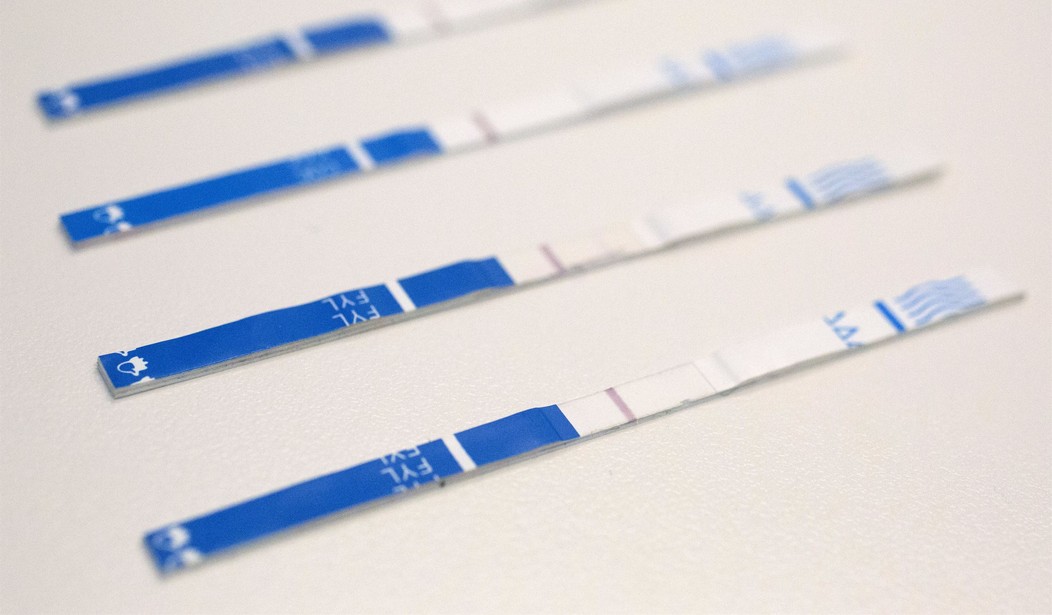Federal, state, and local governments routinely pass laws that do not make any sense, but Texas’ law outlawing fentanyl strips is one of the absolute worst measures in existence. This is especially true given the rapid rise of overdose deaths caused by the opioid.
For years, there have been efforts to overturn the Texas law making the product illegal. Unfortunately, the most current bill failed to make it to Gov. Greg Abbott’s desk, meaning that more people will likely perish from consuming the drug.
Texans gathered at the Texas State Capitol at the beginning of the state’s legislative session to urge lawmakers to address the state’s opioid crisis and provide solutions to combat fentanyl-related deaths. Families who have lost loved ones called for increased funding for treatment centers, the legalization of fentanyl test strips, and greater access to Narcan, a drug that can reverse opioid overdoses. Although Governor Greg Abbott “signed legislation to make Narcan available in schools,” the legislation to legalize fentanyl test strips “didn’t make it to his desk,” Spectrum News reported:
Those impacted by fentanyl asked lawmakers to fund treatment centers, legalize test strips and increase access to Narcan, which can reverse an opioid overdose. Gov. Greg Abbott signed legislation to make Narcan available in schools, but a bill to legalize fentanyl test strips didn’t make it to his desk.
Those testing strips can detect the presence of fentanyl in different kinds of drugs, which could save someone’s life.
“Having that knowledge of, ‘Oh, this has fentanyl in it,’ there is research showing that people change their decisions based on that, right? They might not use the drugs, they might use less,” said Katharine Neill Harris, a fellow in Drug Policy at Rice University’s Baker Institute for Public Policy.
The governor says he supports legalizing fentanyl test strips, after he previously opposed it.
In April, the state House passed a measure that would decriminalize fentanyl strips. But the state Senate has yet to pass it. Katharine Neill Harris, a fellow in Drug Policy at Rice University’s Baker Institute for Public Policy, explained that the problem lies in how proceedings work in the state’s upper chamber:
I think that the peculiarities of the way that the Texas Senate works are a big hindrance to change. And the basic thing is just that the lieutenant governor has so much control over the agenda in the session, and so if he doesn’t like a bill, then the Senate won’t hear it. There was support for the fentanyl test strip bill in the Legislature, but they just did not get an opportunity to fully hear it and discuss it.
The rate of overdose deaths caused by fentanyl increased by almost 400 percent in Texas between 2019 and 2021. Nationwide, about 60,000 people died from the opioid.
Since fentanyl strips are classified as “drug paraphrenalia” in Texas, it is illegal to produce, distribute, or use them. Those doing so could face criminal charges. Penalties for possessing or distributing drug paraphernalia in Texas can range from misdemeanor charges with potential fines and jail time, to felony charges for repeat offenses or if the paraphernalia is associated with certain drug offenses.
The rising death toll from fentanyl overdoses has sparked a debate over the legality of fentanyl test strips, which can detect the presence of the potent synthetic opioid in drugs. It begs the question: Why were these life-saving tools ever made illegal? With the devastating impact of fentanyl on communities, it is crucial to examine whether the government should be prohibiting access to a potentially life-saving resource.
Fentanyl, a highly potent opioid, has wreaked havoc on communities across the United States, claiming countless lives. Its lethal potency is a grave concern, as even minuscule amounts can be fatal. Even more insidious is the fact that most who die from fentanyl are not even aware that they are consuming it because it is laced into ordinary street drugs. The opioid crisis has reached alarming levels, and the urgency to combat fentanyl-related deaths cannot be overstated.
Fentanyl test strips offer a simple and effective method to detect the presence of fentanyl in illicit drugs. By providing users with this crucial information, they can make informed decisions about drug use and take necessary precautions to prevent overdoses. The strips help people to protect themselves and their loved ones from potential harm.
However, not everyone believes that allowing people to use these products is the right move. Those who support making fentanyl strips illegal argue that they facilitate drug use and remove incentives for addicts to quit consuming illicit substances. They contend that allowing people to use them indicates that the government condones drug addiction.
However, it is perplexing to understand why fentanyl test strips have been subject to legal restrictions. The objective of these strips is not to promote or condone drug use but to provide harm reduction strategies for those already engaged in drug use. By criminalizing the possession or distribution of fentanyl test strips, governments inadvertently impede access to a vital tool for harm reduction. Moreover, the government has no business telling people what they should be allowed to use to save their own lives.
With the tragic loss of life resulting from fentanyl overdoses, the primary focus should be on preventing further fatalities. Making fentanyl test strips illegal only serves to perpetuate a dangerous environment for drug users. The punitive approach fails to address the underlying issues and undermines public health efforts to combat the crisis.
As communities grapple with the devastating impact of fentanyl, it is time to reevaluate the legality of fentanyl test strips. Rather than hinder access to potentially life-saving tools, governments should embrace harm reduction strategies and prioritize public health initiatives. Saving lives must take precedence over punitive measures, and fentanyl test strips can play a significant role in turning the tide against this deadly crisis.













